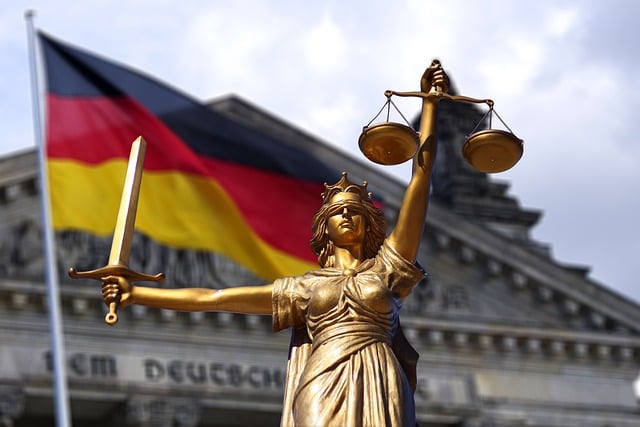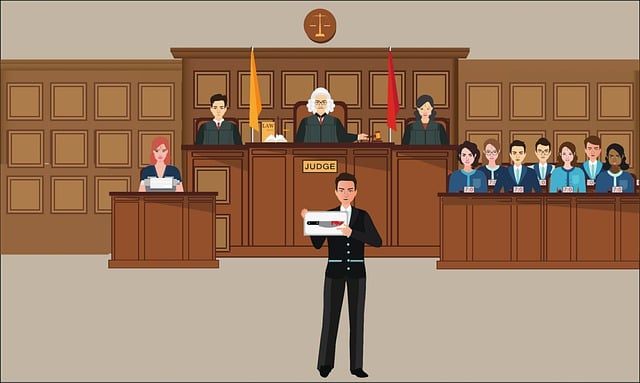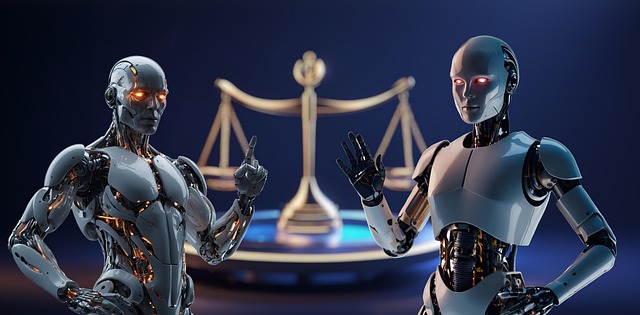Public corruption cases are complex legal landscapes where the How Burden of Proof Affects Verdicts is pivotal. This principle guides prosecutors and defense attorneys in presenting evidence, shaping jury decisions. Strategies involve scrutinizing financial records, raising doubts, leveraging legal loopholes, and expert testimony. Global approaches to public corruption vary greatly, influenced by legal traditions and societal values, impacting how How Burden of Proof Affects Verdicts and perceptions of transparency.
Public corruption charges are a complex web of legal challenges, where understanding the burden of proof is pivotal. This article navigates the intricate landscape of public corruption accusations, delving into the role of evidence and the burden of proof in criminal proceedings. We explore strategies for both prosecution and defense, analyzing how these tactics influence verdicts when evidence falls short or exceeds expectations. Additionally, we present global perspectives on corruption trials, showcasing diverse approaches to tackling this pervasive issue.
- Understanding Public Corruption Charges: A Complex Legal Landscape
- The Role of the Burden of Proof in Criminal Proceedings
- Strategies for Accusing and Defending Against Corruption Allegations
- Impact on Verdicts: When Evidence Falls Short or Exceeds Expectations
- Global Perspectives: How Different Countries Approach Corruption Trials
Understanding Public Corruption Charges: A Complex Legal Landscape

Public Corruption Charges navigate a complex legal landscape where understanding the nuances is paramount. At its core, public corruption involves abuse of power by individuals in positions of authority for personal gain. The challenge lies in proving intent and establishing illicit motives, which are often veiled behind layers of legality. This is where the burden of proof becomes pivotal. Prosecutors must provide concrete evidence that demonstrates beyond a reasonable doubt the existence of corrupt practices.
The process involves all stages of the investigative and enforcement process, from gathering evidence to presenting it in jury trials (or other adjudicative forums). The complexity intensifies due to the subtle nature of corruption—bribes may be veiled as legitimate business transactions, influence peddling masquerades as lobbying, and official secrets can remain hidden. Navigating this landscape requires a meticulous approach, where each step must adhere to legal standards to ensure fairness and prevent wrongful convictions or acquittals.
The Role of the Burden of Proof in Criminal Proceedings
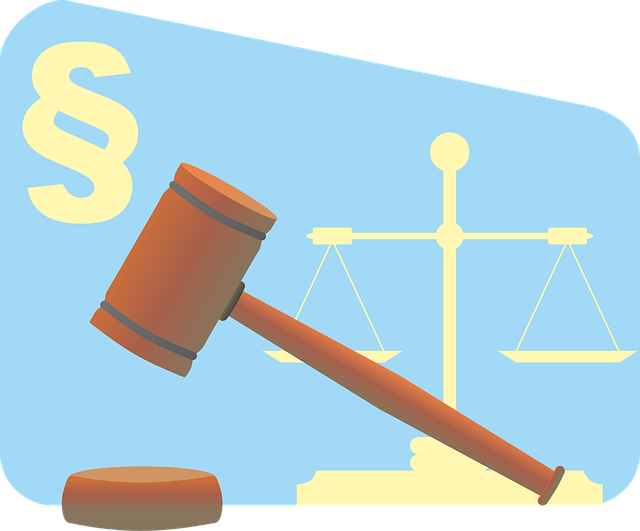
In criminal proceedings, the burden of proof is a fundamental principle that significantly influences the outcome of cases, especially public corruption charges. It refers to the legal obligation placed on prosecutors to present sufficient and compelling evidence to convince the jury or judge beyond a reasonable doubt. This concept is crucial in ensuring fairness and safeguarding against wrongful convictions. When it comes to complex cases of public corruption, where motives might be questionable and evidence intricate, the burden of proof becomes even more critical.
A key aspect to consider is how the burden of proof affects verdicts, particularly when defending clients facing indictment. In jury trials, for instance, prosecutors must assemble a compelling narrative that leaves no reasonable alternative explanation other than guilt. This challenges defence attorneys, who aim to create reasonable doubts and avoid indictment by scrutinizing evidence and presenting counter-arguments. The effectiveness of this process ensures that the justice system reaches just conclusions, balancing the need to hold corrupt officials accountable while preserving the rights of the accused.
Strategies for Accusing and Defending Against Corruption Allegations

In cases of public corruption charges, the strategies employed by both accusers and defenders are shaped significantly by the burden of proof. The onus of presenting compelling evidence lies heavily on those accusing public officials, as they must convince a court or jury beyond a reasonable doubt. This stringent standard requires thorough investigation, meticulous documentation, and strong witness testimonies to ensure convictions. Accusers often delve into financial records, examine conflicts of interest, and highlight unusual transactions to build their case.
Defending against such allegations can be equally complex. Lawyers for accused individuals focus on challenging the evidence, raising reasonable doubts, and questioning the motives of accusers. They may also leverage loopholes in laws or procedures, employ expert testimony, and present alternative explanations for seemingly incriminating actions, particularly focusing on whether criminal intent was present. The interplay between these strategies across the country has evolved over time, reflecting changes in public sentiment and political landscapes, while the role of philanthropic and political communities in funding legal defenses adds another layer to these intricate cases.
Impact on Verdicts: When Evidence Falls Short or Exceeds Expectations

In cases of public corruption, where the stakes are high and scrutiny intense, the burden of proof plays a pivotal role in shaping verdicts. The success or failure of prosecutions often hinges on the quality and strength of the evidence presented. When the evidence falls short of meeting the legal standards required for conviction, it can result in acquittals or significantly challenged defenses. Conversely, robust and compelling evidence can lead to convictions even in complex cases.
In white-collar and economic crimes, where schemes may span years and involve intricate financial transactions, demonstrating guilt beyond a reasonable doubt becomes an unprecedented challenge. Yet, a strong defense strategy, combined with an understanding of the burden of proof, can lead to winning challenging defense verdicts. An experienced legal team can navigate these complex cases, exploiting any weaknesses in the prosecution’s case or highlighting discrepancies in evidence to secure favorable outcomes, backed by their unsurpassed track record.
Global Perspectives: How Different Countries Approach Corruption Trials
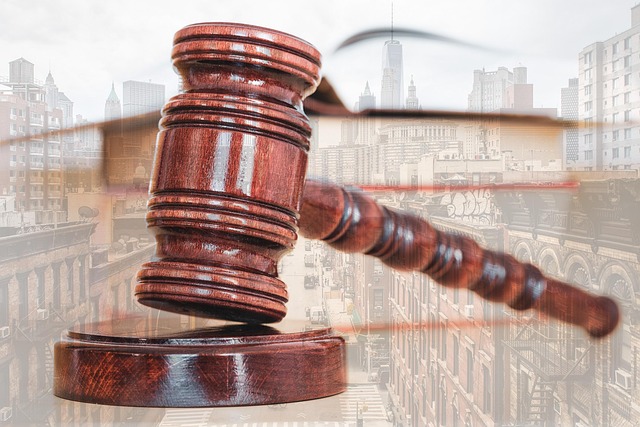
The approach to public corruption charges varies significantly across global jurisdictions, reflecting distinct legal traditions and societal values. In some countries, like those in Northern Europe, corruption trials are known for their meticulousness and strict adherence to legal protocols. Here, the burden of proof is placed squarely on the prosecution, demanding irrefutable evidence to secure a conviction. This robust system prioritizes individual accountability, ensuring that public officials face rigorous scrutiny. Conversely, nations with less stringent procedural rules may rely more on investigative techniques, allowing for a broader range of admissible evidence.
The concept of a “white collar defense” also varies internationally. Some legal systems emphasize the unprecedented track record of successful prosecutions in combating corruption, while others focus on the complexity and all stages of the investigative and enforcement process. How a country defines and punishes corruption is deeply intertwined with its political and economic landscape, shaping the dynamics of these high-stakes trials and influencing global perceptions of transparency and justice.
Public corruption charges navigate a complex legal landscape, with the burden of proof playing a pivotal role in shaping verdicts. Understanding this dynamic is essential for both accusers and defenders. Globally, different countries employ varying approaches to corruption trials, reflecting diverse perspectives on evidence requirements and judicial processes. In the end, the outcome often hinges on whether the presented evidence falls short or exceeds expectations, underscoring the critical impact of the burden of proof on the integrity of these proceedings.
